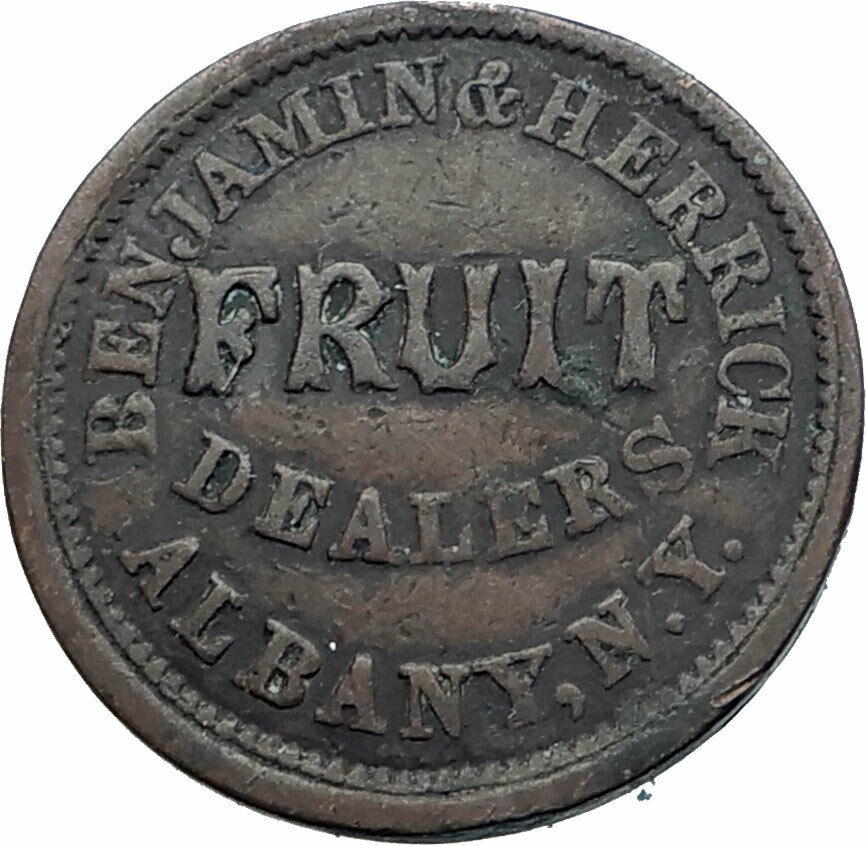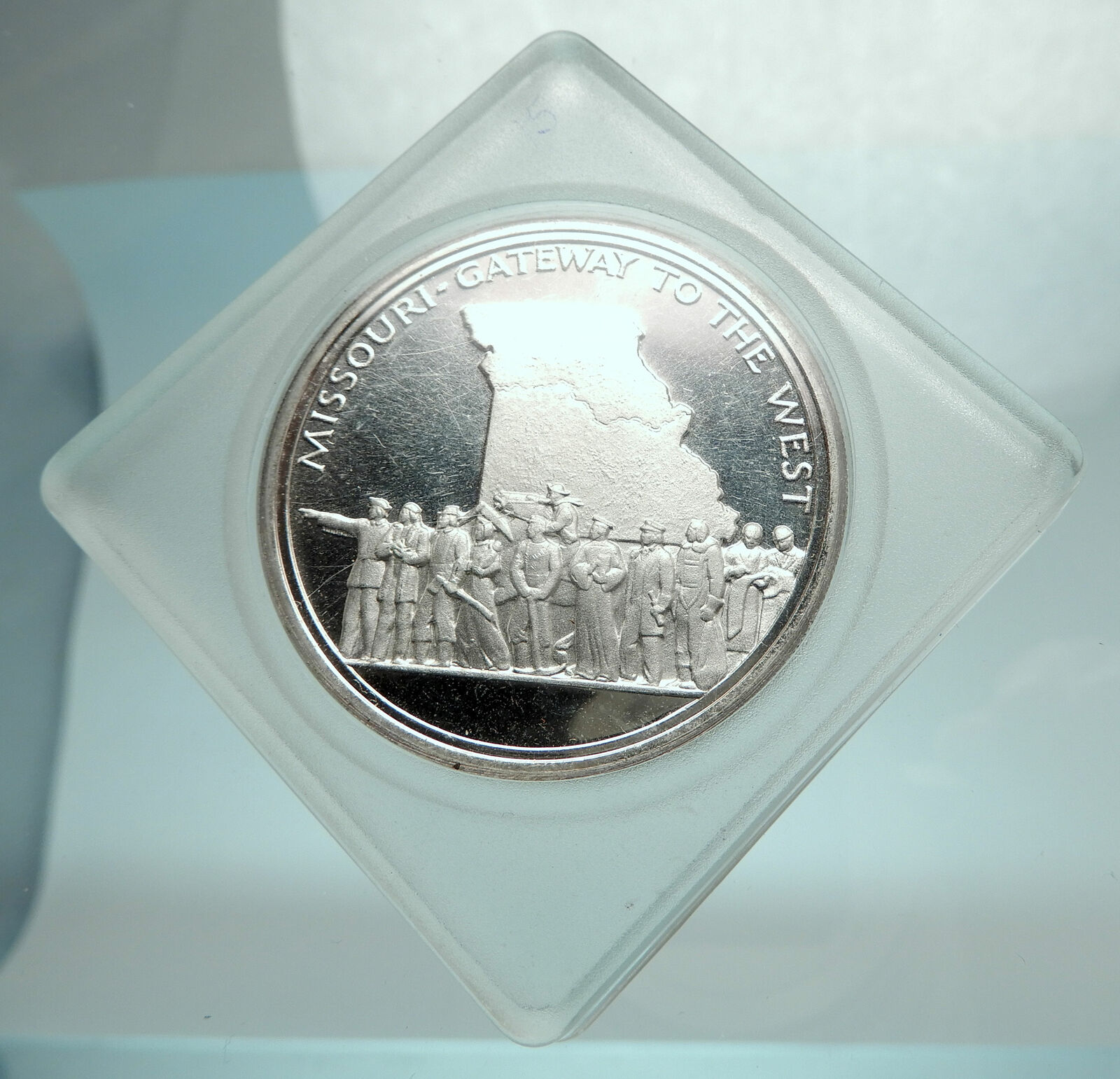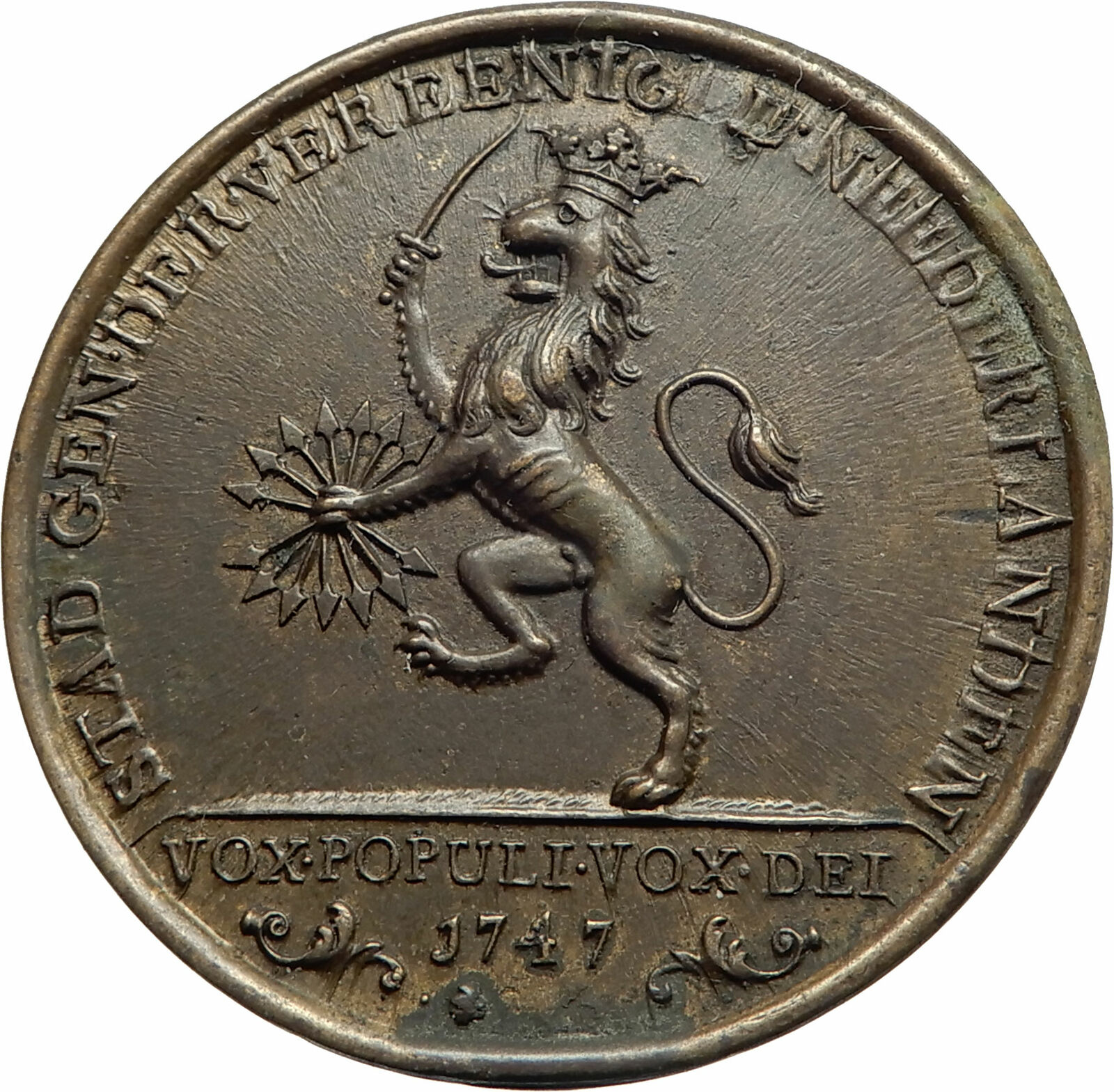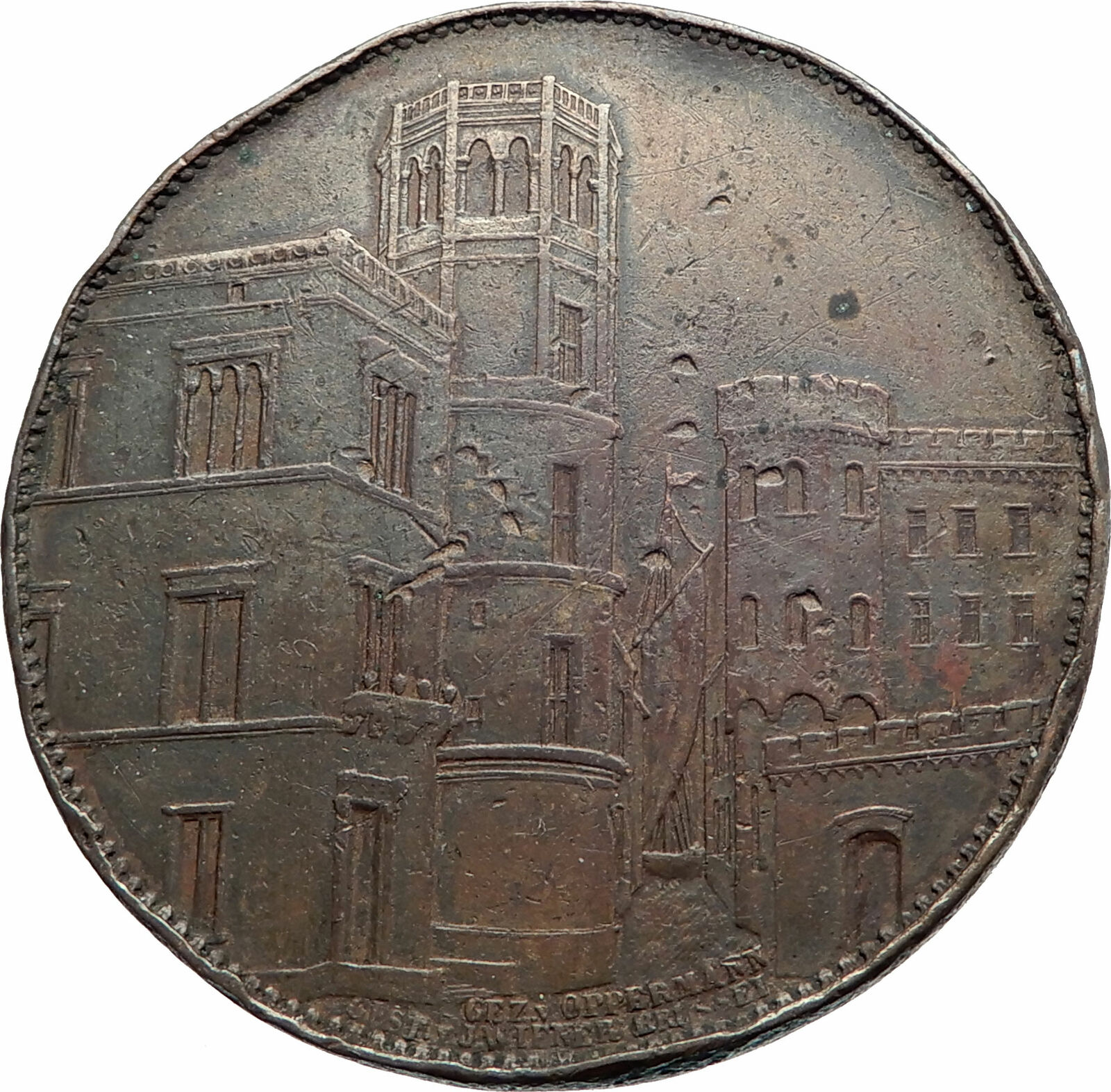|
Brazil
N.E. Almirante Saldhana Ship
1938 Bronze Medal 32mm (13.17 grams)
Reference: KM# 366.1 (R 1823-31)
N.E. ALMIRANTE SALDANHA * BRASIL *, Ship sailing left.
IV VIAGEM DE ISTRUCCAO DE GUARDAS MARINHA * 1938 *, Navy emblem.
You are bidding on the exact item pictured, provided with a Certificate of Authenticity and Lifetime Guarantee of Authenticity.
 Brazil, officially the Federative Republic of Brazil, is the largest country in both South America and Latin America. As the world’s fifth-largest country by both area and population, it is the largest country to have Portuguese as an official language-and the only one in the Americas. Brazil, officially the Federative Republic of Brazil, is the largest country in both South America and Latin America. As the world’s fifth-largest country by both area and population, it is the largest country to have Portuguese as an official language-and the only one in the Americas.
Bounded by the Atlantic Ocean on the east, Brazil has a coastline of 7,491 km (4,655 mi). It borders all other South American countries except Ecuador and Chile and covers 47.3% of the continent’s land area. Its Amazon River basin includes a vast tropical forest, home to diverse wildlife, a variety of ecological systems, and extensive natural resources spanning numerous protected habitats. This unique environmental heritage makes Brazil one of 17 megadiverse countries, and is the subject of significant global interest and debate regarding deforestation and environmental protection.
<img src="https://upload.wikimedia.org/wikipedia/commons/thumb/b/bf/Coat_of_arms_of_Brazil.svg/85px-Coat_of_arms_of_Brazil.svg.png" align="left" brazil="" was="" inhabited="" by="" numerous="" tribal="" nations="" prior="" to="" the="" landing="" in="" 1500="" of="" explorer="" pedro="" Álvares="" cabral,="" who="" claimed="" area="" for="" portuguese="" empire.="" remained="" a="" colony="" until="" 1808,="" when="" capital="" empire="" transferred="" from="" lisbon="" rio="" de="" janeiro.="" 1815,="" elevated="" rank="" kingdom="" upon="" formation="" united="" portugal,="" and="" algarves.="" independence="" achieved="" 1822="" with="" creation="" brazil,="" unitary="" state="" governed="" under="" constitutional="" monarchy="" parliamentary="" system.="" ratification="" first="" constitution="" 1824="" led="" bicameral="" legislature,="" now="" called="" national="" congress.="" country="" became="" presidential="" republic="" 1889="" following="" military="" coup d’étatt. An authoritarian military junta came to power in 1964 and ruled until 1985, after which civilian governance resumed. Brazil’s current constitution, formulated in 1988, defines it as a democratic federal republic. The federation is composed of the union of the Federal District, the 26 states, and the 5,570 municipalities.
.svg/250px-Brazil_(orthographic_projection).svg.png) Brazil’s economy is the world’s ninth-largest by nominal GDP and seventh-largest by GDP (PPP) as of 2015. A member of the BRICS group, Brazil until 2010 had one of the world’s fastest growing major economies, with its economic reforms giving the country new international recognition and influence. Brazil’s national development bank plays an important role for the country’s economic growth. Brazil is a founding member of the United Nations, the G20, BRICS, Unasul, Mercosul, Organization of American States, Organization of Ibero-American States, CPLP, and the Latin Union. Brazil is a regional power in Latin America and a middle power in international affairs, with some analysts identifying it as an emerging global power. One of the world’s major breadbaskets, Brazil has been the largest producer of coffee for the last 150 years. Brazil’s economy is the world’s ninth-largest by nominal GDP and seventh-largest by GDP (PPP) as of 2015. A member of the BRICS group, Brazil until 2010 had one of the world’s fastest growing major economies, with its economic reforms giving the country new international recognition and influence. Brazil’s national development bank plays an important role for the country’s economic growth. Brazil is a founding member of the United Nations, the G20, BRICS, Unasul, Mercosul, Organization of American States, Organization of Ibero-American States, CPLP, and the Latin Union. Brazil is a regional power in Latin America and a middle power in international affairs, with some analysts identifying it as an emerging global power. One of the world’s major breadbaskets, Brazil has been the largest producer of coffee for the last 150 years.
|





 Brazil, officially the Federative Republic of Brazil, is the largest country in both South America and Latin America. As the world’s fifth-largest country by both area and population, it is the largest country to have Portuguese as an official language-and the only one in the Americas.
Brazil, officially the Federative Republic of Brazil, is the largest country in both South America and Latin America. As the world’s fifth-largest country by both area and population, it is the largest country to have Portuguese as an official language-and the only one in the Americas..svg/250px-Brazil_(orthographic_projection).svg.png) Brazil’s economy is the world’s ninth-largest by nominal GDP and seventh-largest by GDP (PPP) as of 2015. A member of the BRICS group, Brazil until 2010 had one of the world’s fastest growing major economies, with its economic reforms giving the country new international recognition and influence. Brazil’s national development bank plays an important role for the country’s economic growth. Brazil is a founding member of the United Nations, the G20, BRICS, Unasul, Mercosul, Organization of American States, Organization of Ibero-American States, CPLP, and the Latin Union. Brazil is a regional power in Latin America and a middle power in international affairs, with some analysts identifying it as an emerging global power. One of the world’s major breadbaskets, Brazil has been the largest producer of coffee for the last 150 years.
Brazil’s economy is the world’s ninth-largest by nominal GDP and seventh-largest by GDP (PPP) as of 2015. A member of the BRICS group, Brazil until 2010 had one of the world’s fastest growing major economies, with its economic reforms giving the country new international recognition and influence. Brazil’s national development bank plays an important role for the country’s economic growth. Brazil is a founding member of the United Nations, the G20, BRICS, Unasul, Mercosul, Organization of American States, Organization of Ibero-American States, CPLP, and the Latin Union. Brazil is a regional power in Latin America and a middle power in international affairs, with some analysts identifying it as an emerging global power. One of the world’s major breadbaskets, Brazil has been the largest producer of coffee for the last 150 years.




